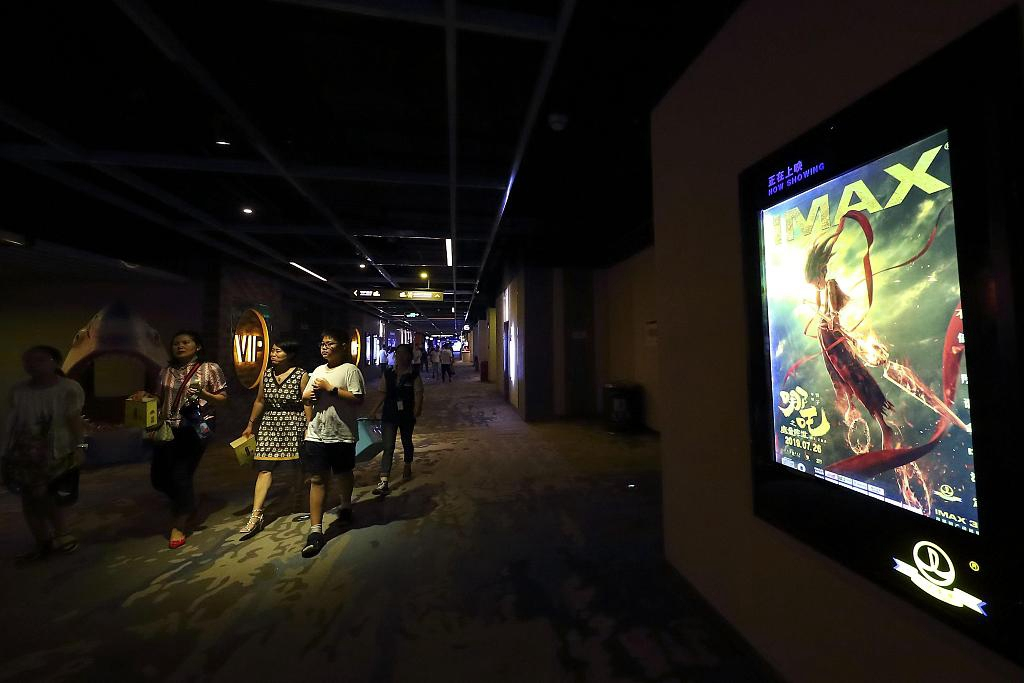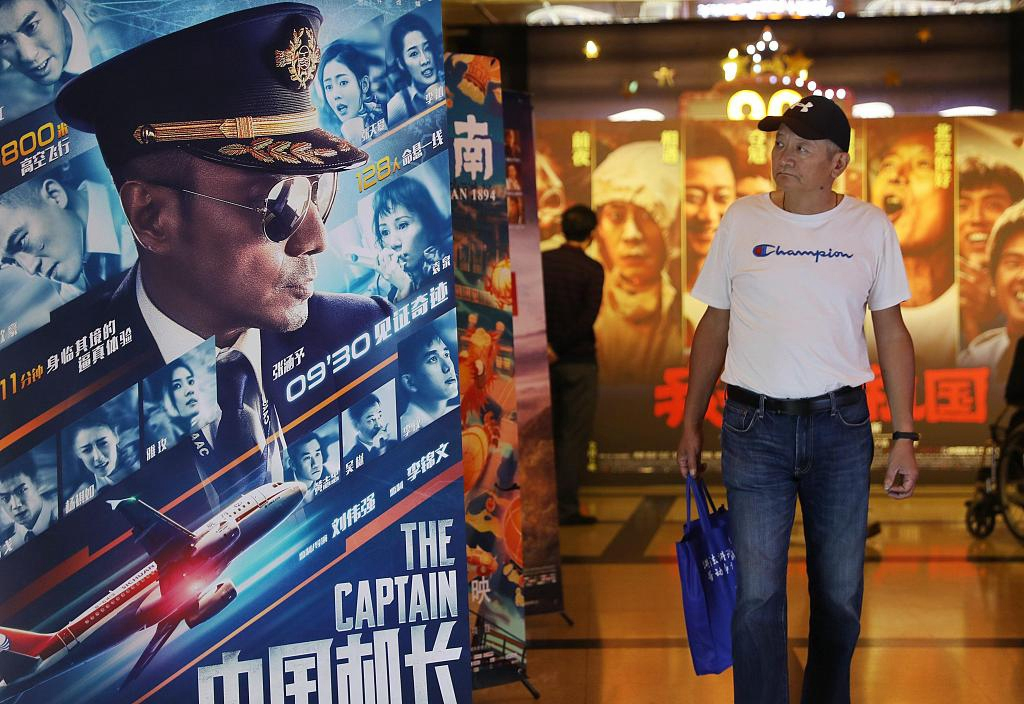Chinese box office takings for 2019 hit 60 billion yuan (8.53 billion U.S. dollars) on Friday, breaking past the marker 24 days earlier than last year.
The number represents 5.2 percent growth year-on-year with a total of 1.6 billion visits made to cinemas; this figure a 3.1 percent increase on last year.
In 2018, general box office takings for the entire 12-month period stood at 60.98 billion yuan (8.67 billion U.S. dollars).
The rise of Chinese sci-fi and animation movies
On the first day of Lunar New Year, "The Wandering Earth" made a skyrocketing debut for a Chinese domestically-made sci-fi film.
It grabbed a total of 4.65 billion yuan (650 million U.S. dollars) and led the Chinese box office in terms of takings for half a year until Chinese animation film "Ne Zha" surpassed it with 4.97 billion yuan (710 million U.S. dollars).
Both genres have long been underrepresented among Chinese-made. Reliant on sophisticated film making, more expertise and usually a larger budget, the two genres have daunted many Chinese filmmakers. But the success of "The Wandering Earth" and "Ne Zha" have no doubt injected momentum to the market.

Movie goers walk pass a poster of "Ne Zha". /VCG Photo
Movie goers walk pass a poster of "Ne Zha". /VCG Photo
Realistic story lines grip audiences
As of Friday, the box office takings of at least 80 films screened in China surpassed 100 million yuan (14.2 million U.S. dollars), among which at least 41 were domestic productions.
"Avengers: Endgame" is the only imported film to make the box office's top 5 most popular movies this year, contributing 4.24 billion yuan (600 million U.S. dollars).
National Day holiday blockbusters "My People, My Country" and "The Captain" were in the fourth and fifth place on the list, earning 2.98 million yuan (42 million U.S. dollars) and 2.86 million yuan (41 million U.S. dollars) respectively.
It is noticeable that realistic films are increasingly favored by audiences. "My People, My Country," though dedicated to the National Day celebrations, focuses on the life of the ordinary people, their happiness and their sorrows, over the past 70 years since the founding of the People's Republic of China.

A man walks past posters of Chinese films "The Captain", "My People, My Country". /VCG Photo
A man walks past posters of Chinese films "The Captain", "My People, My Country". /VCG Photo
"The Captain" is based on the true story of a Sichuan Airlines pilot who made an emergency landing, saving all passengers and crew on board his plane when the windshield of the cockpit cracked. Meanwhile, "The Bravest" is a movie adapted from a real story about firefighters.
"Better Days", a film focused on campus bullying as well as Gaokao, China's college entrance examination, has triggered viral discussions on social media after being released in late October.
This year, the most popular movies at the box office also appeared to be more diversified. Aside from the top five, a number of art house films have emerged, from "So Long, My Son" to "The Crossing". These movies might not necessarily be the highest grossing of the year, but they have contributed a different nuance to China's film market.
Meanwhile, word of mouth has been playing a bigger role in films' success. Movies such as "Capernaum", "Green Book" and "The Blind Melody" have earned more than expected at the box office because of positive public reviews.
With more than 20 days to go until the end of 2019, it is almost certain that last year's records at the box office will be smashed this year.
Cover image: Du Chenxin
Infographics: Li Jingjie